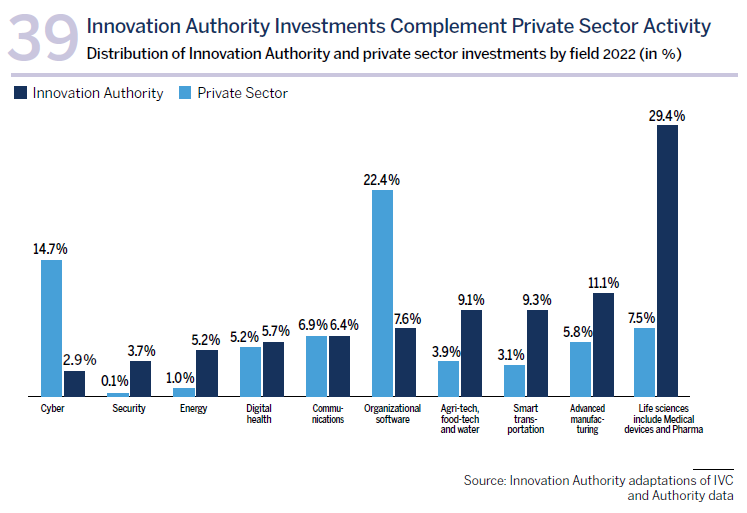Does the State Take More Risk with Investments in Startups Than the Private Sector?
The decline recorded over recent years in investments in startups in Israel stems, among other things, from them being fields that are characterized by long and expensive development processes until products or services are released onto the market and by high risk levels. To continue supporting the development of innovative and breakthrough technologies in more risky fields, the Innovation Authority has decided to invest in breakthrough technologies and in high-risk projects that investors in the private market shy away from investing in.
High risk in a project or company can stem from the fact that the investment prospects are too long-term and not suitable for investors seeking rapid return, as happens in some of the hardware fields in which the entrepreneurs are required to develop tangible products, or for example, in places where regulation extends the time to market, such as the pharmaceutical sector or, alternatively, where it makes development of the field more difficult due to a lack of clear standards e.g., in the food-tech sector. In the last case, the Innovation Authority is also working with regulators to adopt advanced regulation that supports the sector’s development in Israel. One prominent example of this is the field of alternative proteins in which Israel was the third country (after Singapore and the US) to approve a protein alternative created via a process of fermentation.
A study conducted confirms that the Authority’s investments are indeed channeled to the high-risk fields in which the private sector rarely invests.1 The level of correlation between the private sector’s areas of investment and those of the Innovation Authority stands at 0.008. A prominent example of this is the fields of life sciences that include the pharma, medical devices, and biotechnology sectors to which only 7.5% of private market investments are directed. In comparison, in the leading US hubs (San Francisco, New York, and Boston), 15% of investments are directed to these sectors. The Innovation Authority channels a significant portion of its resources to investments in companies in these sectors in which, as noted above, the private sector invests only sparingly, with the goal of assisting the Israeli hub attain a leading global position. The Authority’s investments enable to showcase the extensive experience accumulated in Israel in these areas, among others, in research institutes and hospitals. Other noteworthy fields of significant Innovation Authority investment include advanced manufacturing, agri-tech, food-tech and water, smart transportation, and energy. The share of these fields in the Innovation Authority’s investment pie is double, triple, or even five-fold in relation to the share of private sector investments.
At the same time, the Authority’s investments in the fields of cyber and organizational software stand at 10.5% compared to 37.1% of private market investments. 2The Authority has difficulty in classifying fintech companies, and we therefore refrain from presenting a comparison in relation to this field. Nevertheless, it is worth noting that the experience accumulated by the Innovation Authority indicates that the Authority’s investments in this field are negligible. As noted above, these fields are characterized by a perfect capital market and numerous venture capital investors that specialize in them. If so, why does the Innovation Authority invest in them at all? This is the place to mention that reality is, as always, complex. A narrow view of a company’s area of activity generally fails to tell the whole story, and there may be companies that develop innovative high-risk technologies specifically in fields typified by significant capital. For example, the Authority may receive requests from cyber companies developing quantum technology-based solutions – a new and high-risk field. In addition, although startups developing technologies in the field of Generative AI that is directed, for example, at the field of organizational software, operate in a field popular with investors, the disruptive technology they develop is still high-risk. In this reality, whereby a new technology is on the cusp of breakthrough, it is important to preserve Israel’s comparative advantage in the fields of software.

